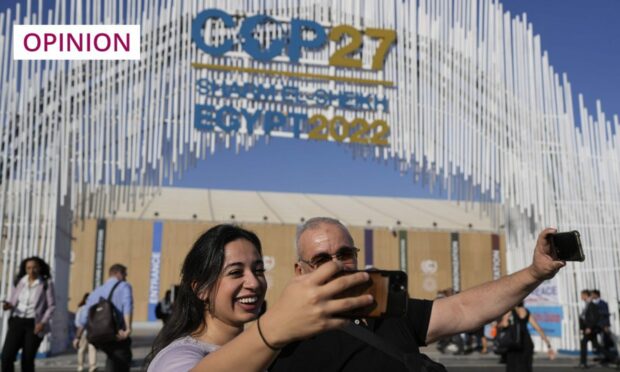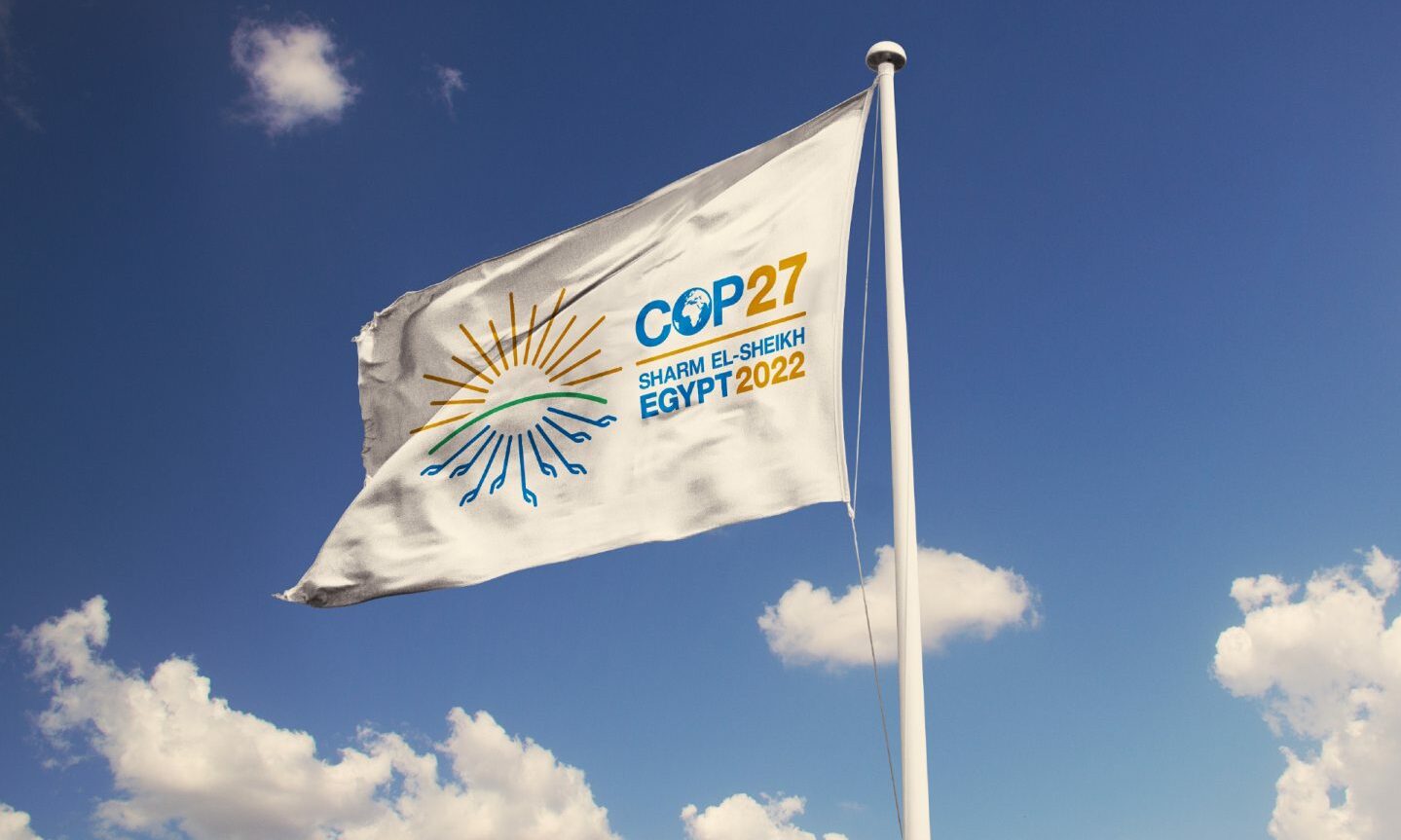Now is a crucial time for countries to commit to fighting climate change, writes Professor David Burslem of the University of Aberdeen from COP27.
After Glasgow in 2021, the focus of global attention on international climate change negotiations has moved on to Sharm el-Sheikh, as Egypt takes on the presidency of the UN’s COP27.
The University of Aberdeen is represented at COP27 by a team of five staff and students, including me, who are here to showcase the university’s work, advocate for specific causes, and observe proceedings.
COP26 in Glasgow left much-unfinished business, not least an insufficient commitment by countries to reduce their greenhouse gas emissions to limit global warming to less than 1.5C.

Despite concessions on phasing out coal, and a majority of countries agreeing to decarbonise by 2050 or 2060, the number submitting concrete plans to back up these commitments has been woefully small over the past year – just 29, prior to the start COP27. As the prime minister of Barbados, Mia Mottley, famously asked at the conclusion of the Glasgow conference: “When will leaders lead?”
The first few days of the conference have been dominated by unresolved issues around finance. Developing countries achieved a hard-won concession to include discussion of “Loss and Damage” on the agenda. This refers to compensation to meet the costs of recovery from climate events such as floods and droughts, caused by the historic carbon dioxide emissions of rich countries.
This morning Indigenous grandmothers and leaders from all over the world hold a water ceremony and march through #COP27 in Sharm El-Sheikh, Egypt calling for respect and protection of all waters and lands. #WaterIsLife pic.twitter.com/EUt4O4HcGQ
— Adrien Salazar (@adrien4ej) November 12, 2022
Separately, an expert group of economists released a report estimating that the cost of energy transition in emerging markets and developing countries will be $1 trillion a year by 2030.
Prime Minister Mottley was again outspoken. In a session chaired by Nicola Sturgeon, she focused on issues of justice. “We were the ones whose blood, sweat and tears financed the industrial revolution,” she said. “Are we now to face double jeopardy by having to pay the cost as a result of those greenhouse gases from the industrial revolution? That is fundamentally unfair.”
COP is vital to climate change fight
As observers, we see very little of COP’s intense negotiations, which go on behind closed doors, so our role is to participate in some of the thousands of side events that provide the backdrop to the conference.
This allows us to present and debate the science of climate change, engage with leaders from the worlds of politics, civil society, academia and business, and develop the networks that will influence change.
It is easy to see why some argue that the intangible benefits of getting 35,000 people together in a remote location on the edge of the Sinai desert don’t justify the financial and environmental costs of the gathering.
On the other hand, mass attendance at the COP meetings provides the collective expression of urgency and will for change that are hard for visiting leaders to ignore.
Professor David Burslem is interdisciplinary director for environment and biodiversity at the University of Aberdeen


Conversation